The war between Israel and Hamas is a humanitarian crisis that also jeopardizes much-needed international progress on climate change. As with the war in Ukraine, the new war in the Middle East threatens to spread to other countries, drive world oil prices and inflation higher, and discourage the international cooperation needed to tackle the climate emergency and other global challenges. To raise the stakes further, this war is erupting in a region containing most of the world’s oil, which is still the lifeblood of the global economy.
News organizations must, of course, cover the war diligently. But with just seven weeks left before negotiators gather at the COP28 climate summit in the United Arab Emirates, can news reporting also remind the public and policymakers alike that rapidly decarbonizing the global economy remains an imperative for humanity?
A must-read October 7 article in the Guardian spotlights the challenge at the heart of the decarbonization imperative: The fossil fuel industry, as currently operated, is incompatible with climate survival. There are three choices, Fiona Harvey writes: “Oil and gas companies, and the petro-states they prop up, must refocus themselves on renewable energy, or they go out of business. Or we will fry.” (Yesterday, ExxonMobil made its choice clear, announcing a $59.5-billion purchase of fellow oil-and-gas company Pioneer Natural Resources.)
Harvey’s article profiles the man presiding over COP28, Sultan Al Jaber. The UAE is the world’s seventh largest oil producer, and Al Jaber is chief of the UAE’s national oil company, ADNOC. Activists have complained that putting an oil executive in charge of a UN climate summit gives cartoonish new meaning to the idea of the fox guarding the hen house. “Completely ridiculous,” Greta Thunberg jeered.
To his credit, Sultan Al Jaber granted Harvey extraordinary access: She interviewed him “at length” three times and observed him at various meetings, including a Buckingham Palace visit with King Charles.
But if Al Jaber thought this access — and what Harvey describes as his “courteous and cheerful” demeanor — would yield the kind of positive coverage he’s received elsewhere, he miscalculated. Harvey, one of the world’s most experienced climate journalists, gave Al Jaber every opportunity to make his points but let him get away with nothing.
At one point, Al Jaber advances the oil industry talking point that he and his colleagues aren’t to blame for climate change — they’re only giving people what they want. “It’s the consumer who contributes to increasing CO2 emissions, not the producer,” he argues. Harvey acidly replies, “I point out that this is the logic of a drug dealer.”
Al Jaber waves numerous shiny objects — “massive investments in renewables, in hydrogen, in carbon capture and storage” — to support his claim that oil and gas companies have a constructive role to play at COP28. Harvey stays focused on the science and the “single obdurate fact: the world cannot go on with a burgeoning fossil fuel industry.”
That is the contradiction at the heart of COP28 and, more generally, climate action globally. It’s the kind of story that journalism is made for, bursting with conflict and drama, and with immense amounts of money and power at stake, not to mention the future of life on Earth. The Israel-Hamas war is crucial for journalists to cover, and get right. So is the story of Big Oil and COP28.
Source : Covering Climate Now

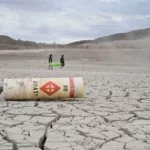

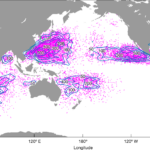



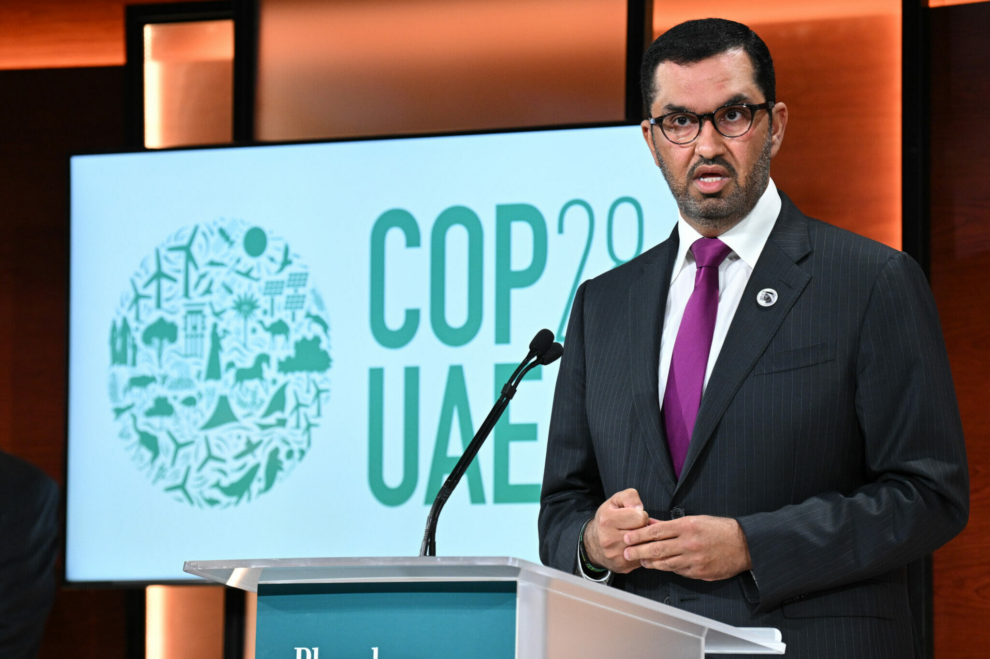
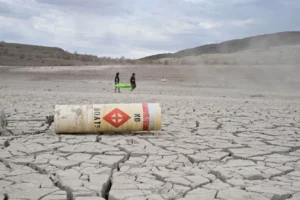

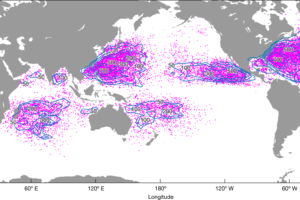
Add Comment